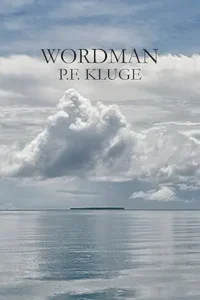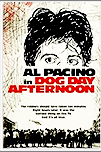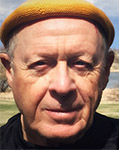Review | WORDMAN by P. F. Kluge (Micronesia)
 Wordman
Wordman
by P.F.Kluge (Micronesia 1967-69)
Peace Corp Writers
204 pages
January, 2024
$22.00 paperback
Reviewed by Stephen Foehr (Ethiopia 1965-66)
• • •
So, you want to be a writer, despite the warnings of school counselors, parents who advise to train for a day job, and the realism of making a living in the creative arts. Okay. It may be a long shot, but it’s possible.
But, first read Wordman, the memoir of P.F. (Fred) Kluge’s career as a journalist and an acclaimed writer. He took the well-trodden route from journalism to nonfiction to fiction. His first job out of college was editor/writer for The Micronesian Reporter as a  Peace Corps volunteer (Micronesia 1967-69). He went on to write features and travel articles for prestigious magazines.
Peace Corps volunteer (Micronesia 1967-69). He went on to write features and travel articles for prestigious magazines.  Two of his novels became films, Dog Day Afternoon and Eddie and the Cruisers.
Two of his novels became films, Dog Day Afternoon and Eddie and the Cruisers.
Kluge’s memoir is a useful primer for making that journey, but its real value is the assemblage of snipes of Kluge’s writings. An aspirant writer or an old hand at the craft will do themselves service to closely study Kluge’s skill and technique.
Kluge built his career on journalism‘s basic skills — ask leading questions, listen very closely in interviews, pay attention to details, do your research, be mentally nimble, and meet the deadline. Journalism teaches discipline, an absolutely necessity to being a writer. Journalism takes the writer out of the Ivory Tower, away from the desk, and parachutes the person into unexpected events and foreign places. A seasoned reporter soon learns to be steady, even adventuresome, outside his/her comfort zone. The first rule of journalism – hook’em in the lede – becomes the Golden Rule of nonfiction features and fiction – write a snappy opening.

PF Kluge (Micronesia)
The examples of Kluge’s journalistic travel writing are a master class in transmuting newspaper journalism into feature writing. Dry, straight-forward prose must now acquire color, interpretation, feeling, and narrative storytelling. The writer is the outsider reporting but must also be inside the story in order to carry the reader into the experience. This liminal between nonfiction and fiction is a fine line. The delicate touch of creativity cannot ascend into fiction, yet must transport the reader into a realm of possibilities. Kluge has that touch down pat.
Writing fiction is the crowning glory of journalism, the Holy Grail quest. The novelist is more an actor than a reporter. The voices in the writing must change, the sentence structure is looser, more compelling, the pace and rhythm of paragraphs freer. Practice, practice, practice is required to tune the ear to the nuances, to surrender the observer to the character that emerges in its own right. Writing fiction is a knowing feeling more so than intellectual reasoning. Yet, fiction must have the authenticity of truth conveyed in responsible journalism. Kluge is a reliable mentor in how to learn the process from journalism to nonfiction to fiction.
Kluge’s memoir includes the practical aspect of making a living as a writer. He advises about agents, the perils of book publishing and self-publishing. There is a section of “Writers About Writing,” with Kluge’s former students recounting their journeys into the business of writing. He recounts personal details of how he finds and gets into a story. There is the backstory of how his father Walter Kluge immigrated from Germany to America, the origin story of P.F. Kluge.
Takeaways from Kluge’s career in writing: find truth through your imagination, cross boundaries with sympathy and empathy, and do it because you need to for survival.
This last bit of advice from Samuel Beckett; “Try again. Fail again. Fail better.” Reading P.F. Kluge encourages you to find your footing, try again when you stumble, and believe in your future in the writing business.
• • •
 Reviewer Stephen Foehr (Ethiopia 1965–66) is the author of numerous nonfiction and fiction books. His new book, just published, is entitled: 8 U.S. Bike Tours Historical Routes. (StephenFoehr. com).
Reviewer Stephen Foehr (Ethiopia 1965–66) is the author of numerous nonfiction and fiction books. His new book, just published, is entitled: 8 U.S. Bike Tours Historical Routes. (StephenFoehr. com).
No comments yet.
Add your comment